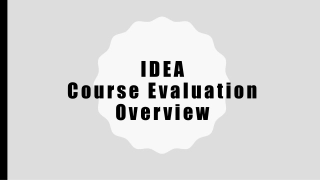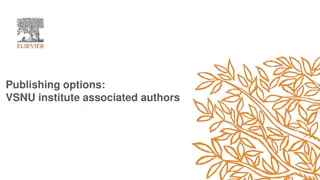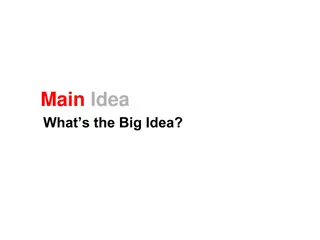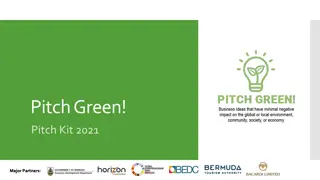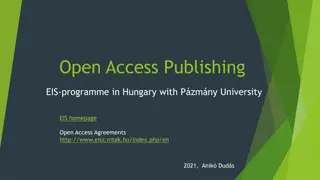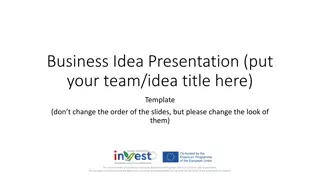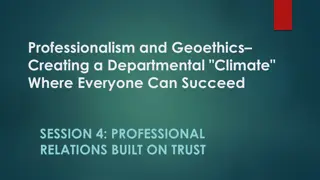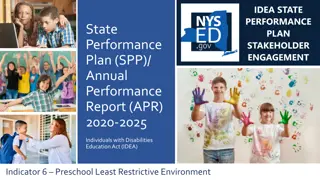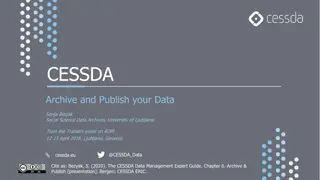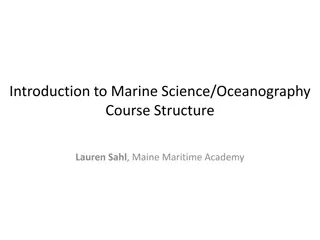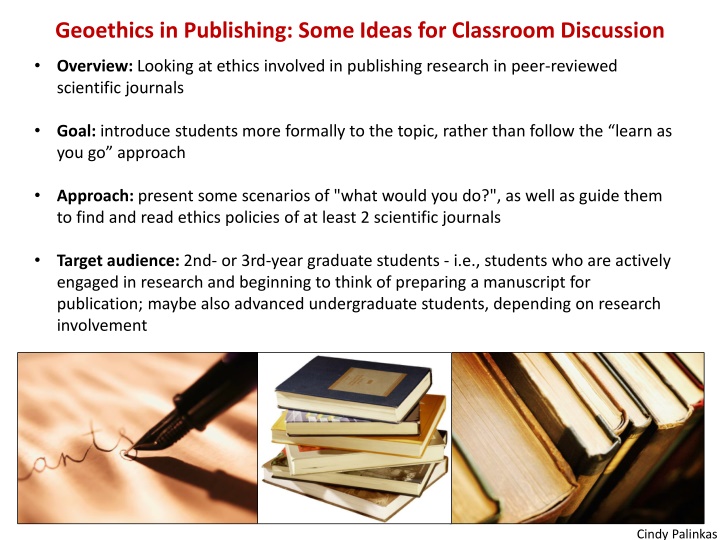
Exploring Ethics in Research Publishing for Graduate Students
Dive into the ethical considerations of publishing research in peer-reviewed journals with this classroom discussion guide. Explore topics such as authorship, manuscript submission, review, revision, and the trust in researchers. Suitable for 2nd-3rd year graduate students and advanced undergraduates engaged in research.
Download Presentation

Please find below an Image/Link to download the presentation.
The content on the website is provided AS IS for your information and personal use only. It may not be sold, licensed, or shared on other websites without obtaining consent from the author. If you encounter any issues during the download, it is possible that the publisher has removed the file from their server.
You are allowed to download the files provided on this website for personal or commercial use, subject to the condition that they are used lawfully. All files are the property of their respective owners.
The content on the website is provided AS IS for your information and personal use only. It may not be sold, licensed, or shared on other websites without obtaining consent from the author.
E N D
Presentation Transcript
Geoethics in Publishing: Some Ideas for Classroom Discussion Overview: Looking at ethics involved in publishing research in peer-reviewed scientific journals Goal: introduce students more formally to the topic, rather than follow the learn as you go approach Approach: present some scenarios of "what would you do?", as well as guide them to find and read ethics policies of at least 2 scientific journals Target audience: 2nd- or 3rd-year graduate students - i.e., students who are actively engaged in research and beginning to think of preparing a manuscript for publication; maybe also advanced undergraduate students, depending on research involvement Cindy Palinkas
Goals/Ethical Issues Addressed Overall goal is to introduce students to many or the thorny issues related to publishing their research in peer-reviewed journals: Authorship: what does it take to be an author and would should be the order of authors? Manuscript submission: obtaining permission to submit from all authors Manuscript review: professionalism and constructive criticism Manuscript revision and response to reviewers: strategies for professional and thoughtful responses Bonus topic: explicit discussion of the trust placed in researchers to self-police with respect to accurate reporting of results and proper citations and credit for thoughts originated by others
Classroom Activities Setting: A class meeting during a writing seminar, near the end of the semester Before class: Students will have been involved in producing writing samples throughout the seminar They will send at least one of these samples to the class (or as pairs or some scheme to ensure multiple reviewers) for review Students come to the class meeting armed with these reviews First up, discussion of authorship: what does it take to be an author, and how is the order of authors determined? - stimulated by the following case study, provided by George Kumi and used in his ethics training for REU students
Case Study #1 You joined Prof. Boss's lab at the beginning of a summer REU program, and you were instructed by Prof. Boss to follow experimental procedures from the lab notebook of last summer's REU participant, Jane. However, Jane's notebook was so badly written (e.g., missing important pieces of information, hard to read) that you were unable to use it. Upon showing the notebook to Prof. Boss at the beginning of the summer, you saw firsthand her surprise, disgust, and anger about the state of the notebook. Prof. Boss explained how to re-do the work, and she put together a scientific paper based on your results at the end of the summer. She has just emailed you the first draft of this paper for your comments, and you notice that Jane's name is not listed as an author on this paper. List any actions/inactions that seem (from your perspective) to be a cause for concern. Put differently, what actions/inactions could be unethical? Explain why each action/inaction is a cause for concern (i.e., who/what may be adversely affected and how?). What are some of the courses of action you would consider? Be sure to specify the possible consequences of each action to you or anything/anyone involved. Are there laws/written regulations that may apply to this situation? What additional information would you seek to help you revise or implement your suggested solutions? What would you suggest to prevent this situation from happening again?
Other Case Studies New claim to authorship of published paper: http://publicationethics.org/case/new-claim-authorship-published-paper Paper submitted for publication without consent of co-authors: http://publicationethics.org/case/paper-submitted-publication-without-consent-or- knowledge-co-authors Intention is to let the conversation evolve freely, using these examples to get things started Instructor should interject stories from the trenches Great resource: Committee on Publication Ethics (forum for peer-reviewed journals to discuss ethical issues): http://publicationethics.org/
Manuscript Review Great resources: http://www.elsevier.com/connect/10-tips-for-reviewing-scientific-manuscripts-and-5- red-flags http://dynamicecology.wordpress.com/2013/01/03/advice-how-to-review-a- manuscript-for-a-journal/ Use these as jumpstarters for discussion of student experiences the last one does an excellent job of explaining how to actually write a review
Responding to Reviews Short discussion of responding to reviews First, handling emotions of rejection (good article from Science: http://sciencecareers.sciencemag.org/career_magazine/previous_issues/articles/2008_ 08_15/caredit.a0800123) Then, tips for crafting a response: http://www.biosciencewriters.com/Responding-to- Comments-from-Peer-Reviewers.aspx


